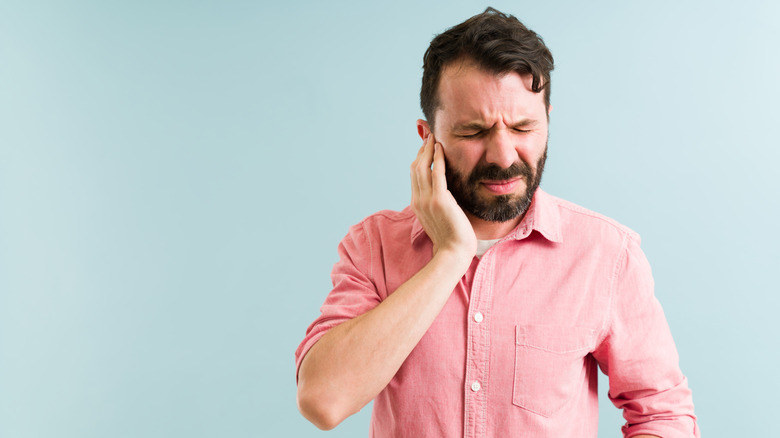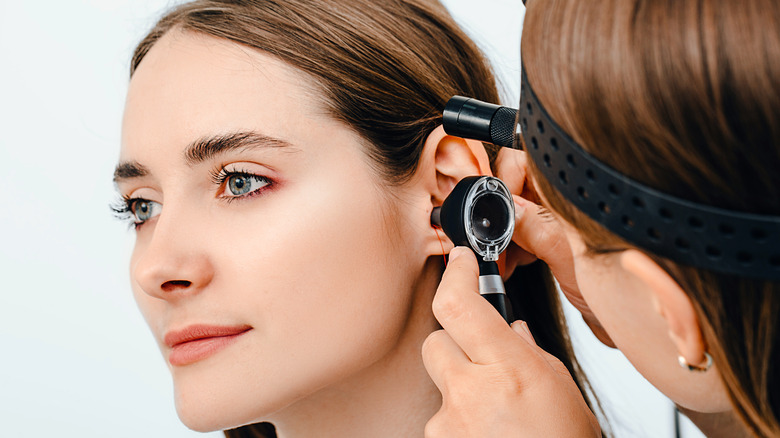The First Thing You Should Do If You Think You Have An Ear Infection
While ear infections are more common in children, they can affect adults, too. According to Healthline, they are viral or bacterial infections, and may cause some pain due to inflammation. Ear infections can happen in the inner, middle, or outer part of your ear. Middle and outer ear infections are more frequent, though. An inner ear infection is less common and may indicate there's an underlying issue present, Medical News Today reports.
Middle ear infections happen when viruses or bacteria infect the eardrum. The viruses or bacteria can come from your mouth, nose, or eyes, and they essentially become stuck behind your eardrum. An outer ear infection happens between the outer part of the eardrum and the outside of the ear. This can result from foreign objects such as fingernails or cotton swabs, or from spending a lot of time in water. It can leave behind an itchy rash, per Medical News Today.
Some people suffer from chronic ear infections, meaning they happen several times or do not clear up on their own. There's also the possibility of suffering from an acute ear infection, which is painful but doesn't last as long. Along with pain, symptoms of ear infections can range from plugged ears and difficulty hearing to fever and headache.
Treatment for ear infections
Many mild ear infections clear up on their own without the need for antibiotics. If you ever feel like you have an ear infection, take a warm compress and place it against your ear first, per Healthline. This can help relieve some of the immediate pain you may experience before taking any over-the-counter pain relievers or using ear drops.
However, some ear infections can end in a trip to the doctor's office. Typically, if your ear infection doesn't clear up in a few days after treatment at home, call your doctor (via Medical News Today). Your doctor may prescribe antibiotics for a bacterial infection, or ear drops to relieve any pain or plugged ears.
According to Mayo Clinic, to help prevent an ear infection from happening, you should avoid secondhand smoke, try to prevent illnesses like colds, and be up-to-date on your vaccinations. Tobacco smoke leaves behind a poor air quality around you, increasing your risk of an ear infection. Staying healthy by washing your hands frequently also helps prevent ear infections.


